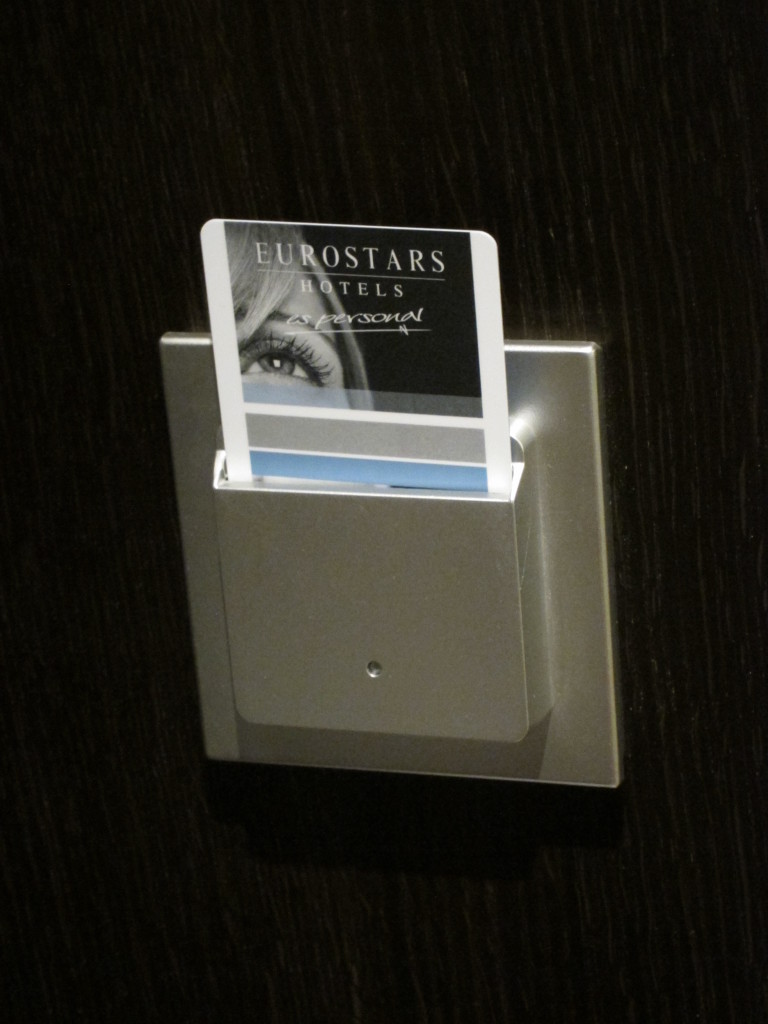I’ve traveled to Europe twice in the last month: to France and Germany.
Both times, I stayed in hotels with a master key.
You can see it in the picture above. (This is from my hotel in Munich.)
The master key works like this: when you get into your room, you put the key into this holder on the wall (as shown).
When you do that, the lights in the room work.
When you take the key out, all the lights in the room go off.
No, this is not new news. This energy-saving technology has been in use in Europe for a long time. It’s just not common practice in the USA.
Beyond it’s energy saving properties, there’s something else that’s magic about the master key.
It makes behavior automatic.
You don’t have to think about turning off the lights. You don’t have to intend to be an energy conservationist. You don’t have to think about anything.It just happens.
A whole host of secondary actions are triggered by the primary action.
This is magic because it’s the key to human behavior change.
Change is hard.
Alan Deutschman in his book Change or Die, shares one of the most shocking and sobering statistics about change:
90% of heart patients who receive coronary-artery bypass surgery, when told (after the surgery) to alter their lifestyle or they will reduce their mortality (aka die) don’t change.
There’s the power of habit in action.
The master key to change is to create automatic habits that serve you well.
For example, how uncomfortable would it be for you to go to sleep at night without brushing your teeth?
That’s the master key in action. Your night time routine cues the tooth brushing behavior. You feel compelled to brush teeth–so much so that you don’t even think about doing it–you just do it.
This principle underlies all behavior change. When you want to make a change, the goal is to link other behaviors to a master behavior so they happen automatically.
Then you can spend energy on the things that really matter, and turn off the energy on the things that don’t.
What “master keys” do you employ to create and or sustain positive behaviors/habits? Join the conversation by leaving a comment below.

